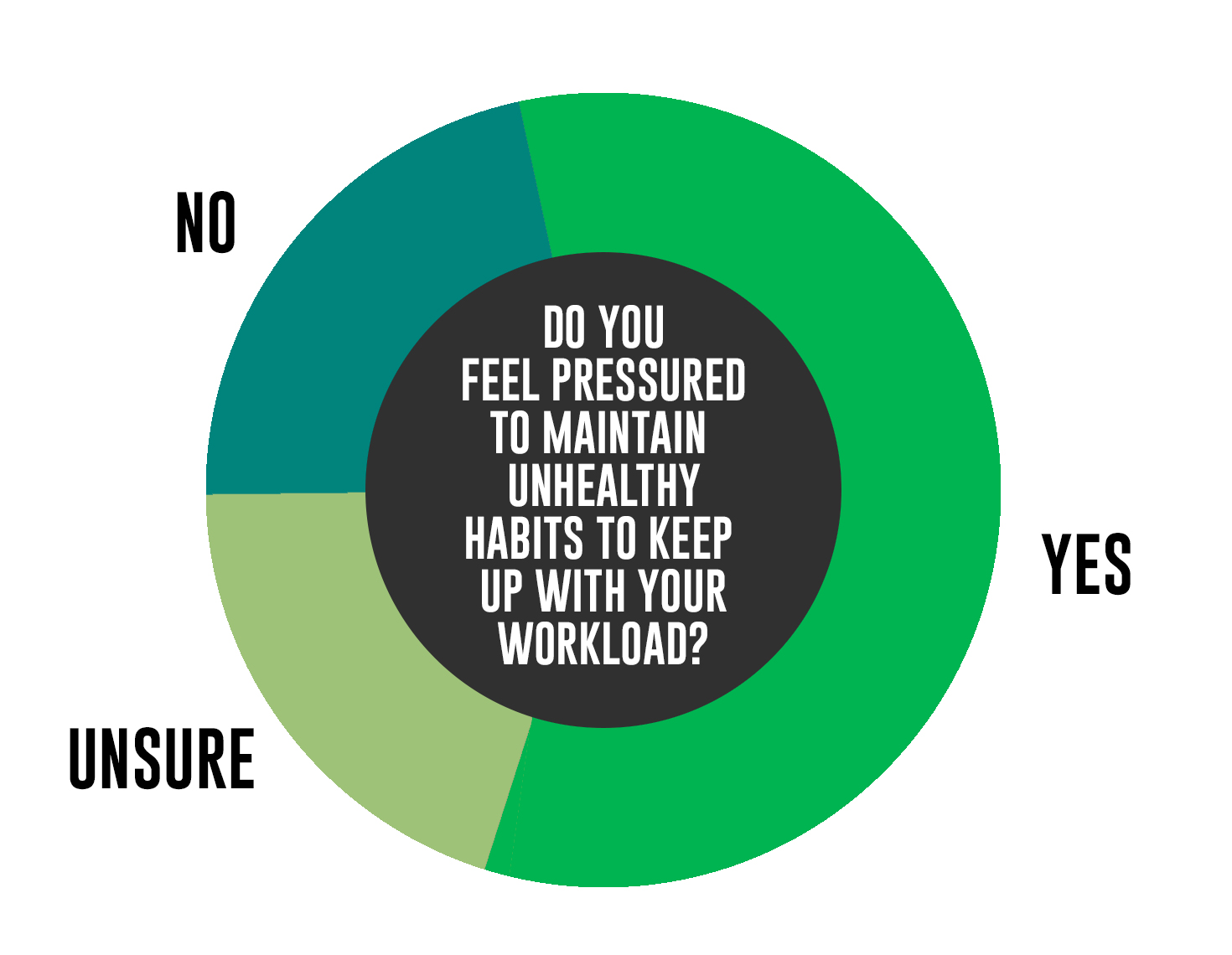On Feb. 23, the Engineering Undergraduate Society (EUS) released the results of a wellness survey of its members that was conducted in November 2016. To address the findings, EUS hosted an open forum on March 9.
According to EUS President Jean-Louis Shi, the results signal a need for change in the Faculty of Engineering.
“The results are pretty shocking,” Shi said. “Seventy per cent of our student population feel like they have to maintain poor sleeping and eating habits. And then, we have 74 per cent of students who said the biggest stress is from the workload.”
Dean of Engineering Jim Nicell explained that it will be important to conduct more surveys pertaining to the mental health of McGill Engineering students in order to create a baseline to measure if progress is being made. Nicell stated that even though he found the results alarming, they did not surprise him.
“This is an issue that we need to be more aware of,” Nicell said. “As a faculty and how we assign workloads. Around one-fourth of our students felt like their faculty cares about their mental health. First, we have to admit that we have a problem, and then [we have] to mobilize resources.”
Nicell and Shi both suggested that one problem that the Faculty of Engineering faces is adequately preparing their students in a field that requires a lot of specified training. Another problem, according to Nicell, is not overwhelming students with the required workload.
“I’ve been meeting with all the deans [of engineering] across Canada,” Nicell said. “We’ve had more conversations about mental health in the past few years than ever before. We recognize that our program is challenging. It’s an increasingly complex world, both sociologically and technically. Essentially, what we do is keep on adding curricula without taking things out. Something’s got to give, it might be that we’re expecting too much of our students in a short amount of time.”
An Open Forum on Engineering Undergraduate Wellness was hosted on March 9 to discuss the results of the EUS Wellness Survey. The forum covered three main areas: Academic, support, and awareness. Points taken from discussion during the forum were presented on March 13 to Engineering Chairs and Directors Committee.
EUS Mental Health Commissioner Jiayi Wang said the attendance of the forum was big enough to lead to productive conversations, but small enough that it was not overwhelming. Both students and faculty attended.
“We had two staff from [McGill Engineering Student Centre] MESC attending,” Wang said. “They were able to offer their side from advising students in an advisor-student relationship.”
Even though he finds the statistics to be indicative of a larger issue with work-life balance within the faculty, Shi says that they also show that engineering students are not alone when it comes to being overwhelmed. Shi noted that a lot of students at the forum were interested in what their rights are.
“Students want to know more on their rights, so they can hold their professors accountable,” Shi said. “Whether it is scheduling a test [outside of scheduled class time during Add/Drop or the last 14 calendar days of the semester], unclear guidelines, [or] work loads that aren’t related to what students are learning.”
Through the publication of the wellness survey and events, like the open forum, Shi hopes that engineering students recognize that EUS is trying to implement changes to improve the mental health of students in their faculty.
“We want people to know that we are taking action up front,” Shi said. “We want to have a better reporting system soon where students can express their complaints, like online in Google Form.”









